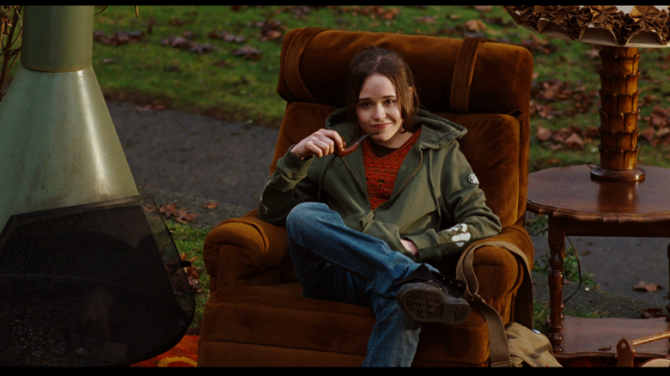I’m looking for a great script.
The Last Great Screenwriting Contest is where I plan to find it.
But there’s a problem.
I’ve been saying, “Give me that next fresh contained horror idea or that next big social thriller,” only to realize that this advice is constricting your ability to come up with either.
For everyone I’ve been meeting in town, I’ve been asking the question, “What kind of script are you looking for?” The endgame being that I can marry what you submit to what the industry wants to produce.
It’s early times with these meetings but one of the things I’ve noticed is that almost everyone’s looking for the same thing. They want reasonably budgeted horror, thriller or sci-fi and you get vanilla stars if it’s contained and double chocolate chip brownie points if there’s some kind of social commentary behind it.
Since everyone knows this is what Hollywood is looking for, every writer is writing one of these movies. Which means the competition is fierce.
But there’s a bigger problem stemming from this need, which is that it gets writers thinking too narrowly. By zooming in on the most recent examples of these successful films, they’re coming up with variations that are too similar.
Take “Get Out” for example. When somebody says to you, “We’re looking for the next Get Out,” your mind zooms in on a very specific type of movie: a couple in a scary contained situation with some sort of social commentary attached to it. It’s hard to build an original idea from a base so narrow.
You know that old Hollywood adage, “Give me something the same but different?” The sweet spot for that advice is being a little closer to ‘different’ than ‘same.’ But most writers approach it the opposite way. They generate ideas that are closer to ‘same’ than ‘different.’
All of this is to say I don’t want you writing Get Out clones. Or A Quiet Place clones. Or John Wick clones. The secret to strong ideas is that they’re not like anything else out there. That’s why they stand out. One of the best ways to explain this is to look at all the movies that surprised Hollywood. These are the concepts that the industry didn’t think much of. They didn’t give 100 million dollar marketing campaigns to to ensure triple digit box office. These were ideas that were outside of Hollywood’s purview yet still found a way to thrive. In that sense, they represent what a good outside-the-box idea should look like. Here are the top “surprise hit movies” every year dating back to the beginning of Scriptshadow…
Biggest Surprise Hit 2019 – Joker
Biggest Surprise Hit 2018 – A Quiet Place
Biggest Surprise Hit 2017 – Get Out
Biggest Surprise Hit 2016 – Deadpool
Biggest Surprise Hit 2015 – American Sniper
Biggest Surprise Hit 2014 – Fault In Our Stars
Biggest Surprise Hit 2013 – Gravity
Biggest Surprise Hit 2012 – Ted
Biggest Surprise Hit 2011 – Bridesmaids
Biggest Surprise Hit 2010 – Inception
Biggest Surprise Hit 2009 – Avatar
Biggest Surprise Hit 2008 – Juno
Okay, let’s see if we can learn anything from these. Joker is an easy one. The last five years has been big fun goofy comic book movies. Audiences were ready for the opposite of that – a stripped-down zero-CGI comic book character study. However, this doesn’t quite apply to the current landscape since we’re at the end of a trend (big fun goofy superhero movies). With the social horror stuff, we’re still at the beginning of it. However, this is a powerful example of taking the temperature of moviegoers, recognizing what they’re bored of, and giving them the opposite.
A Quiet Place, as much as some of you hate it, is the perfect example of the meter being closer to ‘different’ than ‘same.’ This was a SILENT MOVIE. A mainstream silent horror movie. We hadn’t seen that. That and the clever setup (you can’t make a sound in this world) made this feel different from your Conjurings, your Insidiouses, and your Saws, which is why audiences delighted in seeing it.
Get Out was as fresh a concept as they come. When was the last time someone mixed horror and race in an appealing way before this film? Deadpool stood out by making fun of its genre. You can always get away with that when a trend has been around for a while and Deadpool came out at just the right moment. American Sniper was an interesting one because most war movies are made for liberal audiences (theme: war is bad). American Sniper found a concept that appealed to both sides. War is bad (liberals approve) but also here’s a real life American superhero (conservatives approve). I’m not sure we can use this film for today’s lesson, though, as its success is too specific.
On the flip side, Fault In Our Stars is the perfect example of today’s lesson. At the time, YA novels with sci-fi (Hunger Games) or supernatural (Twilight) elements were all the rage. So everyone in town is sitting around saying, “We need to find the next big YA supernatural or sci-fi concept!” If you think about it, we’re in a similar place today. We’re all saying, “We need to find the next big social contained thriller or social contained horror.” So what happened back in 2014? Divergent was made. And what happened with Divergent? It wasn’t fresh. We’d been here already. So of course the franchise imploded. But then we had this YA novel that had nothing to do with sci-fi or the supernatural. It was still YA. BUT IT APPROACHED THE GENRE FROM A DIFFERENT ANGLE – 2 sick teenagers who fall in love. It was NOT the 10,000th YA werewolf franchise Hollywood had been pitched that year. That’s how you generate a truly fresh concept that audiences respond to. You take the seed of the trend and you grow your own plant with it.
I’m going to go off-book here for a second but hang with me. The Hunt is a great example of a social thriller that was different. Everyone else is writing these on-the-nose race-driven social thrillers. Meanwhile, Lindelof is writing something completely different – an elite liberal enterprise that catches and hunts conservatives. I read everything and I hadn’t encountered anything close to this concept. If the media hadn’t gone loco over this movie, The Hunt was primed to be a big hit.
Gravity’s a weird one because, like 1917, it’s so director-dominant that I’m not sure screenwriters can learn much from it. But I will say this. It was unlike anything else at the time, right? I mean who was writing real-time movies in space? NOBODY. Just like who’s writing real-time movies set during World War 1? NOBODY. Actually, there is a lesson to learn here. Real time concepts can take average scenarios and elevate them. Maybe there’s a real-time social thriller to be made. I don’t know.
Ted is another good example of smart concept generation, believe it or not. The buddy movie is the oldest comedy setup there is. You would think, then, that it’d be impossible to infuse a fresh idea into the setup. And yet that’s exactly what they did. They made one of the buddies a real-life talking teddy bear. Who else was writing a script like that at the time? I’ll give ya a hint. NOBODY. This is how you think outside the box.
While most people will tell you Bridesmaids was just The Hangover with women, that’s not true. That was just the way they marketed it so that people would show up. The truth is, we didn’t have big female comedy ensembles at the time. It was such a foreign concept that it truly stood out from anything else out there. And that’s the name of the game for today. What are you giving us that we can’t get somewhere else?
On the surface, Inception had little influence on Hollywood. Outside of Gravity, no one started giving people 120 million dollars for original science-fiction ideas. But what you can learn from these bigger budgeted surprise hits is that they spawn a market for LOWER BUDGETED ideas in this space. Source Code and Transcendence come to mind. Avatar doesn’t help us much. It’s a true anomaly. Nobody else can do what Cameron does. And the only lesson I can take from Juno is that a unique writing voice, particularly a unique DIALOGUE voice, cuts through bland subject matter. Your voice becomes the hook. And that’s what happened with Diablo Cody.
Think about it. Everybody gave her s#@% about Juno’s dialogue, so she stopped writing dialogue like that. And since then, her career hasn’t gone anywhere. Coincidence? If you have a unique voice, the last thing you want to do is tame it, regardless of what the internet thinks.
So what’s the conclusion to all this? It’s to remind you that your minor tweaks of trendy concepts aren’t going to be enough to make your script stand out. You have to push further away from the center to get that original idea that’s going to catch my attention as well as everyone else’s. Get on it. You’ve only got five months left til The Last Great Screenwriting Contest’s deadline!



